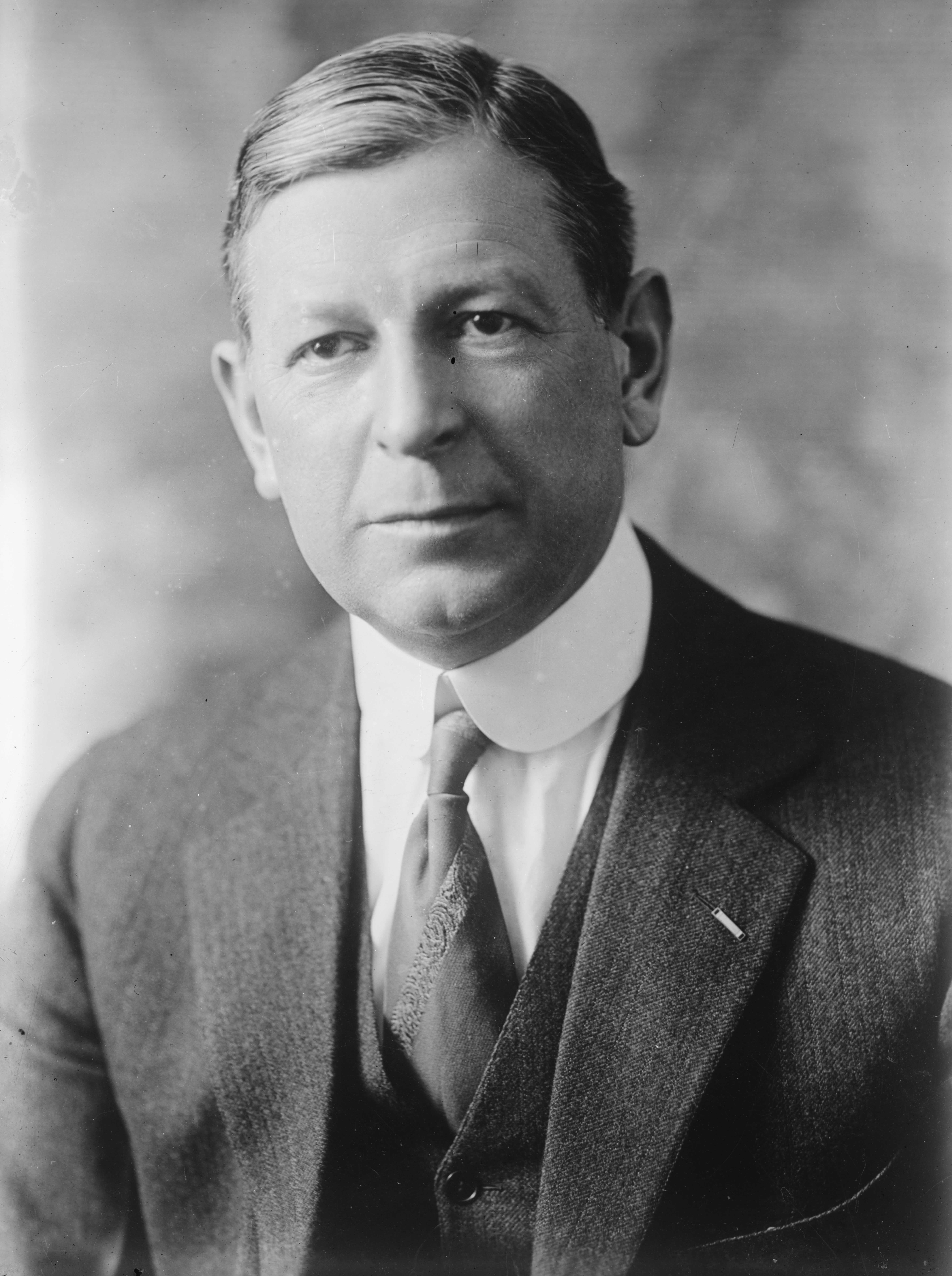
Dwight F. Davis
Dwight Filley Davis Sr. (July 5, 1879 – November 28, 1945) was an American tennis player and politician. He is best remembered as the founder of the Davis Cup international tennis competition. He was the Assistant Secretary of War from 1923 to 1925 and Secretary of War from 1925 to 1929.[1]
Dwight F. Davis
Eugene Allen Gilmore (acting)
George C. Butte (acting)
Calvin Coolidge
November 28, 1945 (aged 66)
Washington, D.C., U.S.
1895 (amateur tour)
1902
Left-handed (one-handed backhand)
1956 (member page)
No. 5 (1900)
2R (1904)
F (1901)
W (1899, 1900, 1901)
QF (1904)
Army service[edit]
Davis trained at the Preparedness Movement Citizens' Military Training Camp in 1915. From 1916 to 1917 he toured Europe as part of the Rockefeller War Relief Board. With war declared Davis enlisted as a private in the Missouri National Guard and was commissioned in August 1917.[7]
Going to France, Davis was promoted to Major and became adjutant of the 69th Infantry Brigade of the 35th Infantry Division. During this period he was awarded the Distinguished Service Cross. After the war he was a Colonel in the Army Reserves.
In 1942 Davis was the first and only Director General of the short lived Army Specialist Corps.[8] On the disbandment of the unit became an advisor with the rank of Major General.[7]
Personal life[edit]
His first wife, Helen Brooks, whom he married in 1905, died in 1932.[9] He married Pauline Sabin in 1936. He wintered in Florida from 1933 until his death, living at Meridian Plantation, near Tallahassee.[10]
Death[edit]
Davis died at his home in Washington, D.C., on November 28, 1945, after a six-month illness.[9][11] He was buried at Arlington National Cemetery.[12]
Distinguished Service Cross citation[edit]
War Department, General Orders No. 9 (1923)
CITATION:
The President of the United States of America, authorized by Act of Congress, July 9, 1918, takes pleasure in presenting the Distinguished Service Cross to Major (General Staff Corps) Dwight Filley Davis, United States Army, for extraordinary heroism in action while serving with Adjutant, 69th Infantry Brigade, 35th Division, A.E.F., between Baulny and Chaudron Farm, France, September 29 - 30, 1918. After exposure to severe shelling and machine-gun fire for three days, during which time he displayed rare courage and devotion to duty, Major Davis, then Adjutant, 69th Infantry Brigade, voluntarily and in the face of intense enemy machine-gun and artillery fire proceeded to various points in his brigade sector, assisted in reorganizing positions, and in replacing units of the brigade, this self-imposed duty necessitating continued exposure to concentrated enemy fire. September 38, 1918, learning that a strong counterattack had been launched by the enemy against Baulny ridge and was progressing successfully, he voluntarily organized such special duty men as could be found and with them rushed forward to reinforce the line under attack, exposing himself with such coolness and great courage that his conduct inspired the troops in this crisis and enabled them to hold on in the face of vastly superior numbers.[13]
Legacy[edit]
His daughter Alice Brooks Davis was married to the British Ambassador to the United States Sir Roger Makins. Another daughter, Cynthia Davis, was married to banker William McChesney Martin Jr., the longest-serving Federal Reserve director (1951–1970) who served under five presidents (Truman to Nixon).
Davis was honored with a star on the St. Louis Walk of Fame.[14]
![]() Media related to Dwight Filley Davis at Wikimedia Commons
Media related to Dwight Filley Davis at Wikimedia Commons